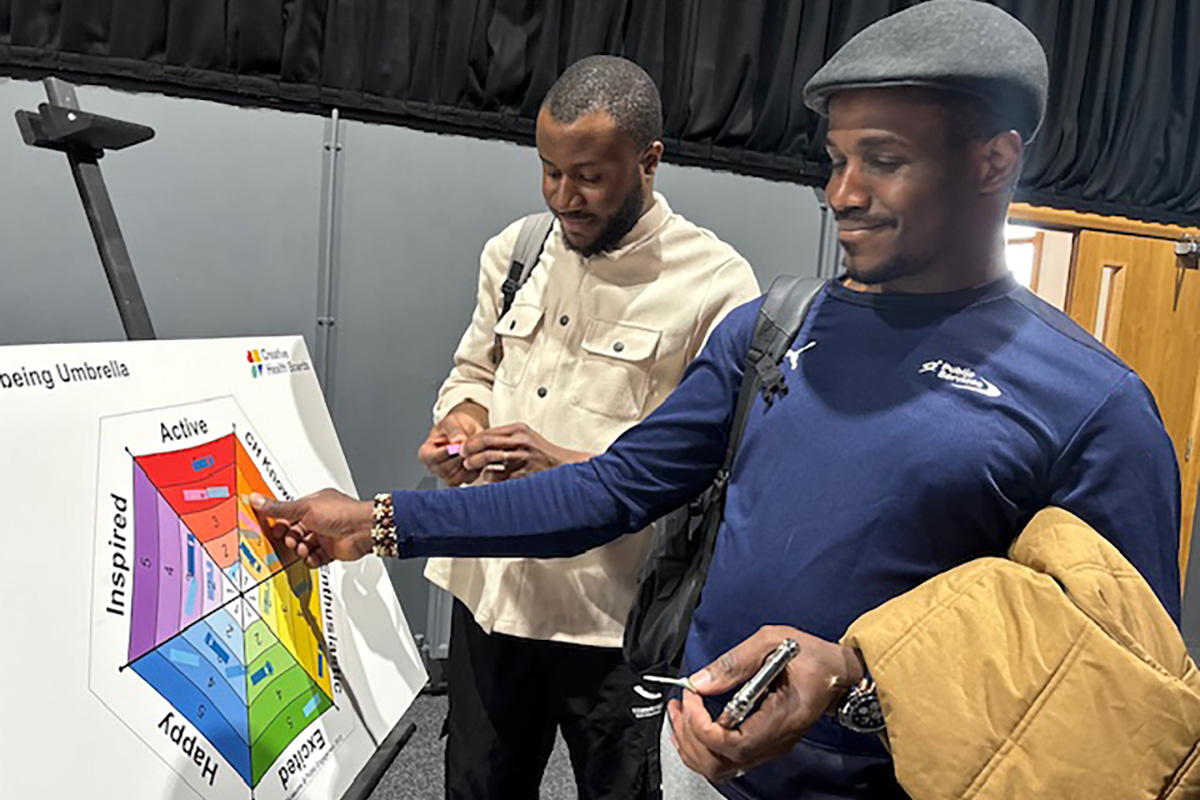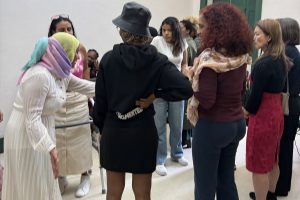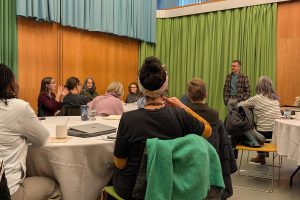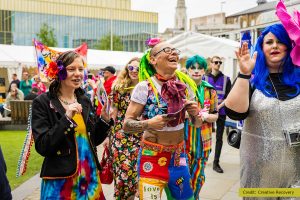
Dave Cartwright, darts Creative Connector.
With central government placing greater emphasis on shifting health provision from hospitals and primary care settings into community spaces, the Creative Health movement has gained renewed momentum.
This shift is driven by growing advocacy and increased recognition of the important role Creative Health plays in supporting both mental and physical wellbeing.
As part of Doncaster’s commitment to reposition Creative Health and showcase the outstanding work taking place across the city, three local cultural organisations—darts (a participatory arts charity), Heritage Doncaster (Museums, Libraries & Art Gallery), and Cast (a regional theatre)—were tasked with delivering The Art of General Practice, a training session for first-year Trainee GPs in the Doncaster & Bassetlaw region.
Held in May, the session offered an engaging and hands-on introduction to the work of each organisation. It began with a dance warm-up led by Charlotte Armitage, Programme Manager for darts’ Dance On project. This embodied activity – raising heart rates, warming muscles, and heightening self-awareness – offered participants first-hand experience of the physical and emotional benefits of movement. Charlotte followed this with a presentation of the strong clinical evidence supporting Dance On, highlighting its proven impact on falls prevention, social isolation, and support for people living with Parkinson’s.
Next, Lucy Robertshaw, Director of Creative Health at darts, provided a national context, drawing from An Introduction to Creative Health (Jenkins, 2024) to help participants understand the broader landscape and significance of the movement across the UK.
After a short break in which the trainees were given the opportunity to listen to audio-recordings of participants talking about their own lived experience of Creative Health, Nic Doyle, Community Engagement Manager at Cast, introduced the theatre’s participatory work and its impact on health and wellbeing. Cast’s programmes foster a strong sense of belonging and connection, building confidence, communication skills, and physical mobility. Participants have reported marked improvements in speech and language, as well as benefiting from inclusive, supportive spaces—particularly valuable for those who are neurodivergent.
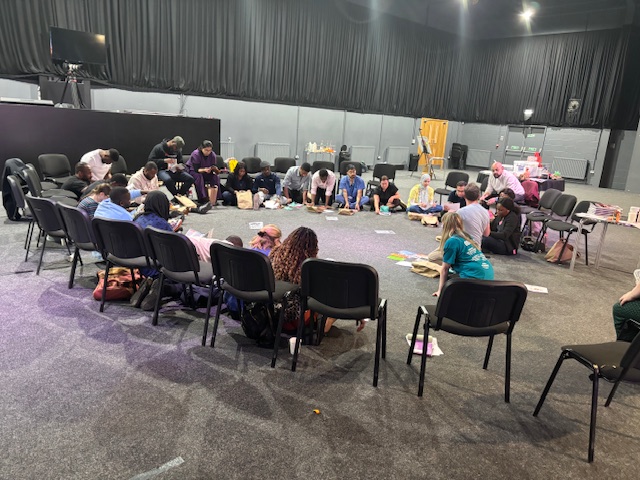
A brief breathing exercise led by Dave Cartwright, Creative Health Connector, followed. This introduced trainees to the role of the cultural sector in supporting respiratory conditions such as COPD, Long COVID and asthma.
“I really enjoyed the calming effect the breathing exercises instilled in me.” – Trainee
The final presentation came from Jo McQuade, Community Development Officer at Heritage Doncaster, who introduced the History, Health and Happiness programme. Through an object-handling session, trainees experienced the mindful and social benefits of this work. Jo shared examples of how the museum supports individuals with learning difficulties, as well as its Museum at Home boxes – resources designed for those unable to leave their homes. Attention was also given to a new chronic pain intervention being developed by Heritage Doncaster alongside key voices in Doncaster’s Pain Pathway.
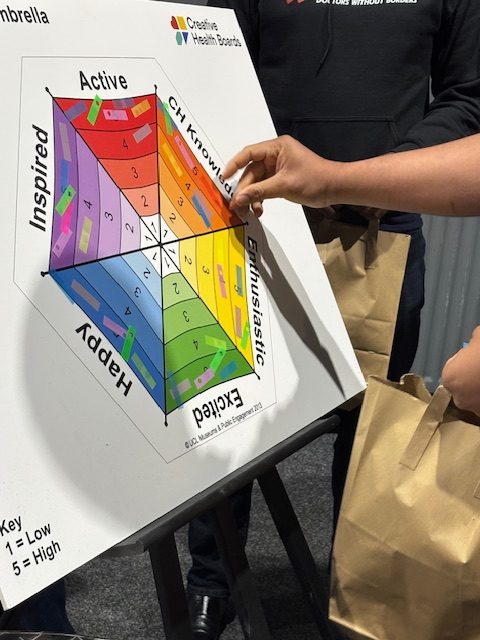
The trainees told us they were deeply impressed – not only by the range of initiatives showcased, but also by the tangible health outcomes achieved.
“This was really an enlightening session. Thank you. I am now more aware of a lot of non-medical ways of addressing difficult medical concerns, which I will now be incorporating into my practice…” – Trainee
Dr Rachel Hubbard, GP and Training Programme Director for Doncaster and Bassetlaw, has worked closely with these community assets and recognises the vital role they play in patient recovery. Reflecting on the session, she said:
“It was fantastic to welcome our speakers from Cast, Heritage, and darts to our GP registrar training session in May. We all enjoyed dancing, hearing participants’ life-changing stories, and understanding the vital role ‘art on prescription’ can play for our patients in the local community.”
Trainees have been invited to attend sessions across cultural venues and in community settings, and the next Art of General Practice session is already scheduled for May next year to welcome the next trainee cohort.
